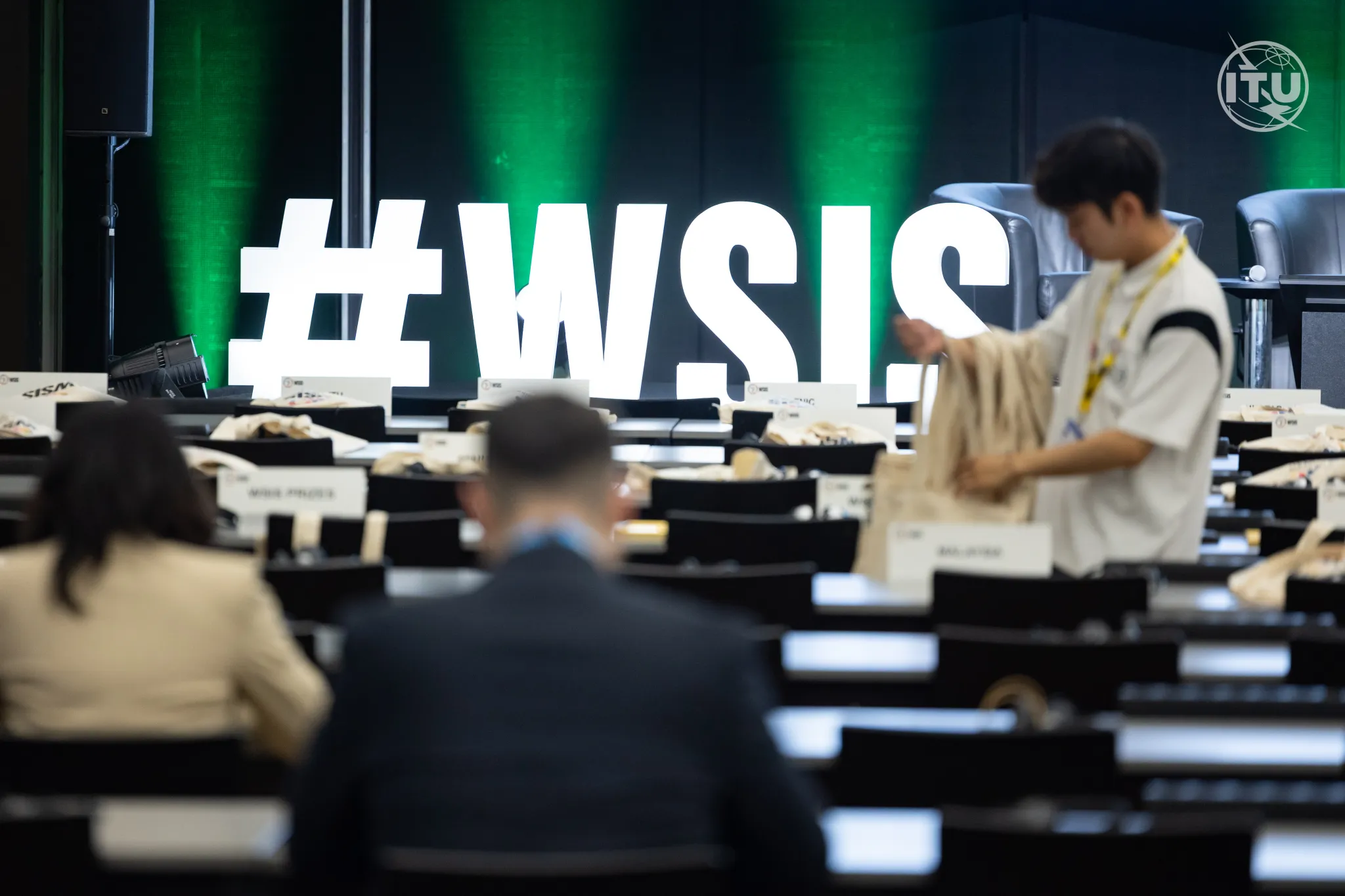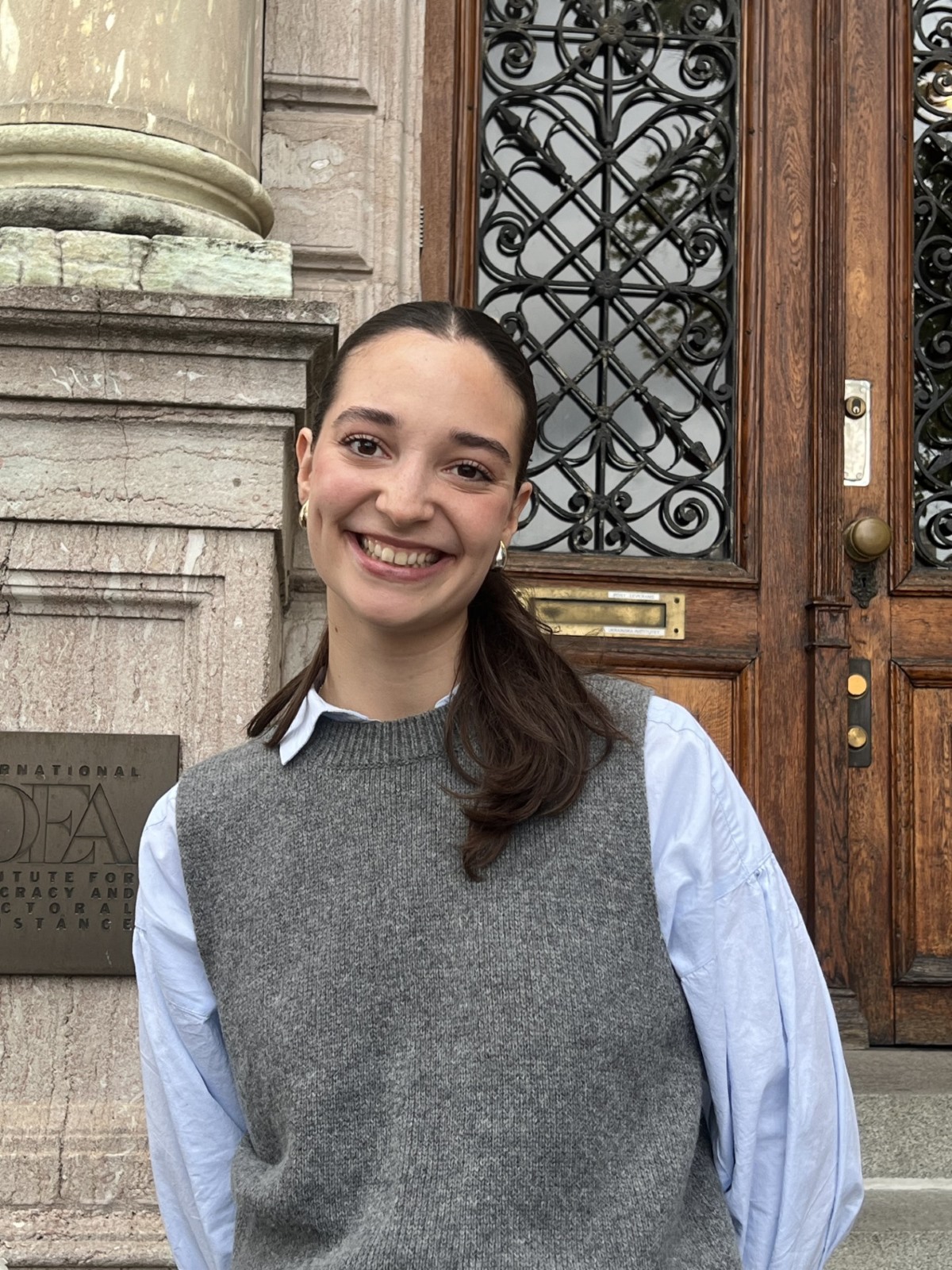From Dialogue to Direction: Reflections on the WSIS+20 Stakeholder Consultations

At the same time, the collaborative ideals that shaped WSIS are being challenged by new pressures and competing visions for how the Internet should be governed and used. Authoritarian states are attempting to manipulate the current understanding of the Internet as an open and interoperable space for free communication. Their goal is to promote the wrong idea that the Internet is a tool for control, repression, and surveillance. A key part of safeguarding the Internet's original promise is ensuring that it is governed not only through a multilateral process, but also through a system that includes the technical community, civil society, academia, the private sector, and independent experts. This amalgamation of interested parties, known as the multistakeholder community, plays a significant role in the WSIS review that should not be reduced to a procedural formality.
Through these consultations, stakeholders are able to contribute in written or verbal form to the WSIS+20 process and embody a genuine commitment to engage marginalized stakeholder groups whose interests risk getting overlooked in decision-making processes. Yet, there remains an urgent need to strengthen the explicit protection and promotion of democratic integrity in WSIS+20. Upholding the democratic nature of this process means not only listening to the input provided by the stakeholders, but ensuring diverse representation, meaningful participation, and enforcement mechanisms at every stage of this global process. Multistakeholderism makes up one of the cornerstones of the WSIS process. Beyond token visibility, its goal is to uphold the open Internet model by convening participatory, bottom-up processes and emphasizing the stability and integrity of digital technologies
Despite their crucial role, the WSIS process frequently lacks multistakeholder dialogue. The zero draft, for instance, fails to endorse the multistakeholder model as a non-negotiable principle of Internet governance. Organizations such as Access Now, the Internet Society and ARTICLE 19 underscore the lax posture held towards solidifying the inclusive and meaningful participation of stakeholders in digital policymaking processes. Additionally, the document does not ground the multistakeholder model in the São Paulo Multistakeholder Guidelines — a set of guidelines that strengthens inclusive stakeholder participation — making it appear as an occasional feature of the WSIS+20. Without multistakeholder consultations, civil society will have zero influence to shape the final outcome of the process, leaving it in the hands of countries. The risk is that countries are primarily guided by mainstream political agendas, which can lead to the neglect of other stakeholders' interests if in conflict with national interests. Involving stakeholders beyond traditional state actors strengthens the legitimacy and effectiveness of global governance. This ensures that decision-making processes reflect true technical realities rather than general experiences alone. This underscores the importance of incorporating the perspectives of diverse stakeholders into all review processes.
How can multistakeholder engagement become sustained during the WSIS+20? The ultimate influence of these consultations remains uncertain, given that final decisions rest with UN Member States, who may prioritize national interests over broader multistakeholder inputs. To strengthen multistakeholderism, entities like the Internet Society advocate for shifting away from ad-hoc, voluntary funding towards stable support and formalized mechanisms that ensure civil society’s voice is integrated into policymaking. One way to address the laxity of funding mechanisms is to reinforce funding provisions throughout the draft to ensure greater accountability of member states. APCO Worldwide adds that the WSIS+20 process should enhance the involvement of global, regional, and private financial institutions and funders. The UK Government’s Department for IT and Internet Governance emphasizes the importance of enabling an environment that is conducive to investment. This discussion equally underscores the necessity to secure sustainable funding for the Internet Governance Forum (IGF). The IGF operates in parallel to the WSIS process as a permanent forum that acts as a bridge-builder between various digital stakeholders. Dialogues revolve around the establishment and implementation of Internet governance policies. Sustaining the IGF as an effective and inclusive forum is crucial to countering fragmentation in digital governance. Some experts highlight that reliable funding for the IGF is vital to enabling meaningful participation from stakeholders across all regions of the world. Without this foundational backing, multistakeholderism risks becoming a hollow formality, undermining authentic representation, accountability, and participatory governance in the digital realm.
The stakeholder consultations in a nutshell
Nowadays, the Internet governance debate has grown far beyond dialogue on the multistakeholder model. The rapid transformations of the digital space present symptoms of increasing contention. Support for digital sovereignty is surging among authoritarian actors, while observers warn that concentrated, state-driven models of Internet governance threaten the fundamental democratic values of decentralization, accessibility, and inclusiveness. Preserving a unified, non-fragmented global Internet should remain the guiding objective for digital governance moving forward.
Democratic accountability remains central to safeguarding these processes. However, the Internet governance sections of the current draft have been criticized by civil society organizations for lacking tangible accountability mechanisms and for relying largely on broad, indefinite rhetoric around openness and inclusivity. In its current form, the zero draft does not enshrine elements such as transparency, independent oversight, or meaningful public participation. Leaving precarious gaps in standards that are crucial for safeguarding democratic principles, human rights, and fundamental freedoms in the digital ecosystem.
Civil society organizations, such as ARTICLE 19 and Eurovisioni, urged strong protections for free, independent, pluralistic, and diverse media outlets, viewing them as essential to upholding media freedom and civic space. International IDEA’s Global State of Democracy Report underscores a troubling decline in both press freedom and freedom of expression worldwide. The Democracy Tracker tool from International IDEA highlights cases of concern, including Kyrgyzstan's recent adoption of a new media law that requires media outlets to register with the Cabinet of Ministers to be granted the right to operate. This law enables the government to control what news is disseminated and revoke permits. Although such actions may appear narrowly targeted, they pose a broader threat to press freedom and free speech, demonstrating how small legislative shifts can erode core democratic principles. This case is illustrative of a concerning uptick in authoritarian restrictions in the information environment that are misleadingly justified as 'protecting democracy’. In addition, stakeholders argued that media outlets should not only be acknowledged as a legitimate stakeholder group in digital governance, but that knowledge commons and journalism must be treated as essential public infrastructure. Defending media freedom reaffirms support for the open-Internet model and opposes state-centric models of digital governance that concentrate control over information and content consumed by citizens. Stakeholders equally called for efforts to combat online disinformation without infringing on the fundamental right to freedom of expression.
The Tech Global Institute, along with other civil society actors, emphasized that global connectivity should not be viewed as the ultimate objective. To truly bridge participation gaps, WSIS+20 must look beyond economic and infrastructure barriers and prioritize enhancing local representation, accountability, and participatory decision-making. Ensuring meaningful participation in decision-making underscores the need to actively incorporate the insights and feedback provided during the stakeholder consultations into the future stages of the WSIS+20 review process. Youth representatives from regional Internet Governance Forums (IGFs) underscored the need to strengthen linkages between these forums to advance grassroots’ political inclusion and deliberative democracy. Across the consultations, stakeholders reiterated the importance of sustained funding as a prerequisite for achieving meaningful and lasting participation.
Stakeholders praised the strong human rights framework embedded in the current zero draft, emphasizing the growing importance of aligning the digital environment with established human rights standards. As digital technologies increasingly permeate our daily lives, they significantly influence the exercise of civil, political, and other fundamental rights. The swift evolution of technology increasingly complicates the safeguarding of digital rights and the integrity of democratic processes. Therefore, integrating human rights protections into constitutional frameworks is imperative to both safeguard these rights and address digital inequalities effectively. ARTICLE 19 highlighted that while the human rights language may provoke extensive negotiations among states, it is grounded in previously agreed-upon UN language and should not be a source of concern. However, experts have pointed out that the draft lacks clear enforcement and oversight mechanisms for upholding these human rights obligations. Rather than being a set of voluntary guidelines, the document should articulate binding commitments, particularly in emerging areas such as artificial intelligence and content regulation. Ensuring that technology use adheres to these commitments is essential for protecting fundamental rights in the digital age.
What’s next?
Multistakeholder consultations play a vital role in countering the fragmentation and growing centralization of Internet governance while maintaining the Internet's open architecture. A wide range of concerns and recommendations were raised by diverse stakeholders to help refine the draft before the start of intergovernmental negotiations. Following the consultations, the first revision of the zero draft was disseminated to serve as the basis for intergovernmental negotiations. This revision refines the sections on closing the digital divide and the environmental impact of digital activities. As expected, language pertaining to human rights online has been toned down, with some safeguards eliminated entirely. Data governance and AI have remained largely untouched, while coordination between the WSIS and the Global Digital Compact, as a somewhat parallel process on the review of digital governance, has been strengthened.
It is essential to reinforce these elements to preserve and advance democracy and its core values in the digital age. A healthy digital ecosystem protects rights and freedoms, and ensures accountability, participation and transparency, principles that are foundational to any democratic society. The WSIS+20 process therefore stands as a test of the global community’s capacity to align internet governance with democratic principles, thereby bridging the gap between technological progress and democratic resilience.
The next steps in the process will bring together all United Nations member states for informal intergovernmental negotiations on the draft text. During these negotiations, states will advance their national positions and negotiate the outcomes of the WSIS+20. The negotiations will culminate in a high-level meeting in the UN General Assembly in New York, where the hope is that the text will be adopted unanimously by all 193 states. The resulting document will serve as a digital guide for the international community over the next decade. It is therefore imperative, now more than ever, to incorporate the voices of all stakeholders to ensure that the final document respects and protects a diversity of interests.




